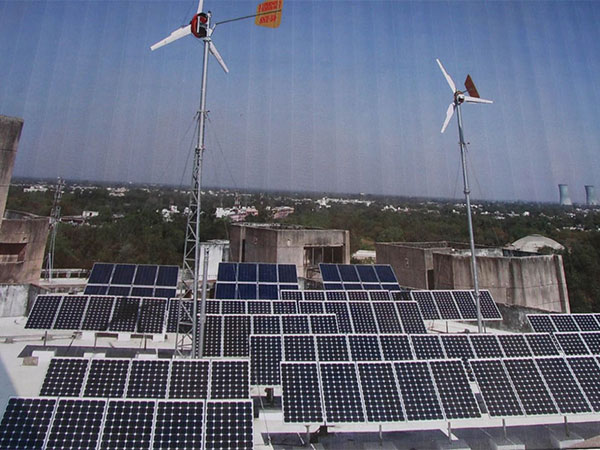Gujarat Leads India's Green Transition: A Renewable Energy Revolution
Under PM Modi's leadership, Gujarat has pioneered India's renewable energy sector, achieving half of its power from sustainable sources. With major investments in solar and wind projects, the state exemplifies innovation and strategic policy-making, fostering a green and economically vibrant future.

- Country:
- India
Gujarat has taken center stage in India's renewable energy revolution, notably under the leadership of Prime Minister Narendra Modi. The state, historically under Modi's transformative governance, has demonstrated significant progress over the last 23 years.
With a total power generation capacity of 52,424 MW, Gujarat stands as a beacon for renewable energy, attributing 50 percent of this to renewable sources. The state's commitment to clean energy saw a remarkable leap from 45,912 MW to 52,424 MW in just a year, showcasing impressive advancements and a determination to lead India's sustainability mission.
Strategic investments in solar, wind, and hybrid projects, bolstered by a conducive policy environment, have been pivotal. The recent Renewable Energy Summit 2024 further highlighted Gujarat's role as a leader, involving global stakeholders to discuss the future of clean energy.
Having invested substantially in plants producing renewable energy, surpassing its conventional power investments, Gujarat's advancements are not confined to infrastructure alone. Its policies, such as extending the Gujarat Renewable Energy Policy to 2028, underline the state's emphasis on a sustainable agenda, empowering solar and wind energy solutions.
Landmark projects like Modhera Solar Village and Charanka Solar Park exemplify Gujarat's successes in renewable energy. These initiatives have yielded not only environmental benefits but have also been drivers for economic growth and social inclusion, as seen with the energy self-sufficiency at Modhera, which reduced resident electricity costs significantly.
Future prospects include a planned offshore wind project near Pipavav, poised to cement Gujarat's status in reducing carbon emissions and enhancing its clean energy capacity. The state's ongoing efforts to exploit its geographical advantages underscore its potential to continue leading India's green transition.
Ultimately, Gujarat's endeavors in clean energy have set formidable benchmarks globally, building a future that aligns with ecological aspirations and economic progress.
(With inputs from agencies.)
ALSO READ
KBC and EIB Launch €600M Loan Facility to Boost Sustainability Investments for Belgian SMEs
16th GRIHA Summit Concludes, Unveiling Innovative Sustainability Initiatives and a Forward-looking Vision for Resilient Infrastructure
Building Road Safety and Sustainability: Corporate and Community Collaboration
Building Vietnam’s High-Income Economy: Opportunities in Trade, Skills, and Sustainability
Mahakumbh 2025: Merging Tradition with Modernity and Sustainability










